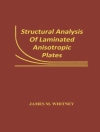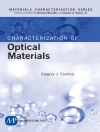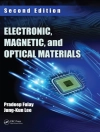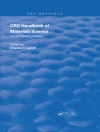Volume 1 of a 4-volume series is a concise, authoritative and an eminently readable and enjoyable experience related to hydrogen production, storage and usage for portable and stationary power. Although the major focus is on hydrogen, discussion of fossil fuels and nuclear power is also presented where appropriate. This monograph is written by recognized experts in the field, and is both timely and appropriate as this decade will see application of hydrogen as an energy carrier, for example in transportation sector.
The world’s reliance on fossil fuels is due to the ever growing need for energy to sustain life and on-going progress; however exploitation also brings consequences such as emission of carbon, nitrogen and sulfur dioxides into the atmosphere. The collective influence of these photochemical gases is production of acid rain and an alternation of global temperatures, leading to record high temperatures in many parts of the world. The fossil fuel is unsustainable andthus there is a critical need for alternative sustainable energy resources. One universal energy carrier is hydrogen, which is the focus of this volume.
This book is suitable for those who work in the energy field as technical experts, including engineers and scientists, as well as managers, policy and decision-makers, environmentalists and consultants. Students and practitioners such as lectures, teachers, legislators and their aids in the field of energy will find this book invaluable and a practical handbook or guide in the field of sustainable energy with emphasis on hydrogen as an energy carrier.
Tabla de materias
Photocatalytic Hydrogen Evolution.- Transition Metal Complexes for Hydrogen Activation.- Hydrogen Separation Membranes of Polymeric Materials.- Hydrogen Storage Technologies.- Hydrogen Storage in Metal-Organic Frameworks.- Porous Carbons for Hydrogen Storage.- Strategies for Hydrogen Storage in Porous Organic Polymers.- Metal Hydrides Used for Hydrogen Storage.- Characterization of H
2 Adsorption Sites: Where Are the Hydrogens Stored in the Materials?.- Hydrogen-driven Economy and Utilization.
Sobre el autor
Dr. Bashir was chair of the American Chemical Society (ACS) South Texas Region (2011–2012); Dr. Liu was secretary/treasurer of the same section (2010–2011). Part of their leadership role was to invite elite speakers from top universities to come to the south Texas region to give technical presentations.
In 2012–2013, both Drs. Bashir and Liu co-organized a symposium on behalf of the National ACS Conference (COLLOIDAL division) in Indianapolis, IN, related to colloidal based bottom-up synthesis in nanofabrication related to environmental and energy aspects. At that conference, Dr. Liu separately co-organized energy talks on behalf of the ACS ENERGY division.
In March 2014, both Drs. Bashir and Liu co-organized an ACS symposium (COLLOIDAL division) in Dallas, TX, related to environmental cleanup using nano-engineered systems.Both editors are therefore well known and well connected in this field to put forth an excellent book on this topic.












